Learn more about the journey that led to us equipping kids to carefully evaluate every idea they encounter.
Meet members of our team who have contributed to curriculum development.
Hear from real users of the Foundation Curriculum.
Learn what we believe about God, Jesus, Scripture, and more.
March 2022 Book Club Recommendations
Our goal in the Foundation Worldview Book Club is to provide resources for you to have meaningful, literature-based worldview discussions with the children God has placed in your care. We work hard to choose books with insightful, truth-based themes. However, we know that our subscribers will have different convictions about the content they allow in their homes, churches, and classrooms. We encourage you to read the recommended books ahead of time, to ensure that the content fits within the framework you have already established in your ministry context. Please also note that by recommending a certain book, Foundation Worldview is not endorsing every work published by a particular author.
Book for Adults
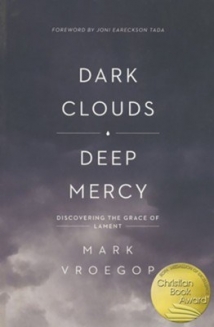
Dark Cloud, Deep Mercy: Discovering the Grace of Lament
Mark Vroegop
The Bible is full of stories of men and women lamenting over loss and suffering. The Psalms are full of lament. God even dedicated an entire book in His Word to lament. Yet, lament is something we have forgotten in the West. This book provides an outline of the biblical grace of lament and will help you and the children in your care gain a deeper understanding of how God calls us to relate to him in suffering and loss.
Book for Children Ages 8-12
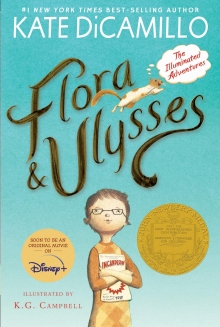
Flora and Ulysses
Kate DiCamillo
She’s a self-proclaimed cynic with a comic book obsession, and he’s a squirrel who received superpowers after being sucked into a vacuum cleaner. Together, Flora and Ulysses will form alliances, counter arch-villains, and figure out the true nature of the universe through the power of poetry… or something.
Question 1 - Throughout the book, Flora often refers to herself as a “cynic” and tells herself “do not hope; instead, observe”. Does what you tell yourself about your own identity matter? Is it possible to not correctly understand our identity?
Discussion Guide - Discuss with your child how we begin to believe what we tell ourselves about who we are. For example, if we continually call ourselves not smart, we will begin to believe we are not smart. If we always say that we are amazing, we will begin to believe we are amazing. Discuss how we often believe things about ourselves that are not true. That is why we need to continually go back to God’s Word to remember who we are (fallen image-bearers redeemed by Jesus).
Question 2 - Ulysses is an unlikely hero, but when he has Flora to believe in and encourage him, he is able to save the day and realize his true potential. What is the benefit of having someone by your side to encourage you, or of being an encourager for someone else? At the same time, what are the drawbacks of being the hero in your own story, and where should that focus be as a Christ-follower?
Discussion Guide - Have your child discuss the benefits of having faithful friends. Connect this question back to the last, talking through how friends can help us remember our true identity. Then discuss who the true hero is in the story of life - Jesus. Talk about how our culture always tricks us into believing that we are the hero. Be on the lookout for that messaging in ads, YouTube videos, and other forms of media.
Question 3 - William Spiver constantly talks about how the universe is expanding and how it is a random place that is filled with mystery and beauty. Why is it important to know that we are in this world for a purpose, and not random side effects or accidents?
Discussion Guide - Discuss how knowing that we were purposefully designed for specific good works God has planned for us impacts our life. It shows us that we have value and how we live our lives actually matters.
Bonus Question - If your child has gone through Foundation Comparative Worldview Curriculum, say, “Imagine you are having a conversation with William Spiver about the nature of the universe. How would you use what we learned about life and information to defend to him why the universe is not random, but intentionally created by God for a purpose?”
Discussion Guide - Discuss the letter tile activity where we saw that information always comes from intelligence. Then discuss how you could use that activity to ask William Spiver about the larger quantities of information found in life and why he thinks that information points to random chance.
Bonus Question - If your child has gone through Foundation Careful Thinking Curriculum, say, ”Dr. Meescham is portrayed as one of the wisest and most optimistic people in the book because she chooses to believe in things like God and miracles. Her belief is based on the fact that the world seems more beautiful if she believes in them. Is her faith based on subjective feelings or objective truth? Is this a wise type of faith.’”
Discussion Guide - Discuss how Dr. Meescham’s faith is based on subjective feelings. Her faith is simply wishful thinking. Ask your child what type of objective evidence he or she would provide to support the claim that God exists. (You can also have them point back to truths they learned in the previous Book Club book, Cold-Case Christianity for Kids.)
Book for Children Ages 4-7
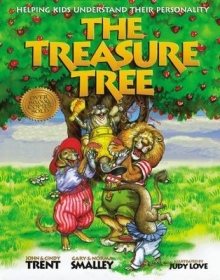
The Treasure Tree
Dr. Gary Smalley, John Trent Ph.D.
Join four friends as they search for a hidden treasure. Along the way, they will learn how the different gifts God has given them make stronger together than they are apart.
Question 1 - In this book we met four very different friends? Which friend are you most like?
Discussion Guide - Discuss whether your child is bold like Lance, joyful, like Giggles, Helpful like Honey, or detailed like Chewey.
Question 2 - How did each friend's strengths help them find the treasure?
Discussion Guide - Have your child retell one of the stories about how one of the friend’s strengths helped them find the treasure.
Question 3 - How can remembering that different people are important help you when you are feeling frustrated with others?
Discussion Guide - Discuss how we easily become frustrated with people who are different than us. However, many of those differences are special gifts God has given others.
Join the Foundation Worldview Book Club
Each month we provide recommended reading with discussion questions for you and your child. Don't miss next month's recommendations from Foundation Worldview!
Related Posts and insights
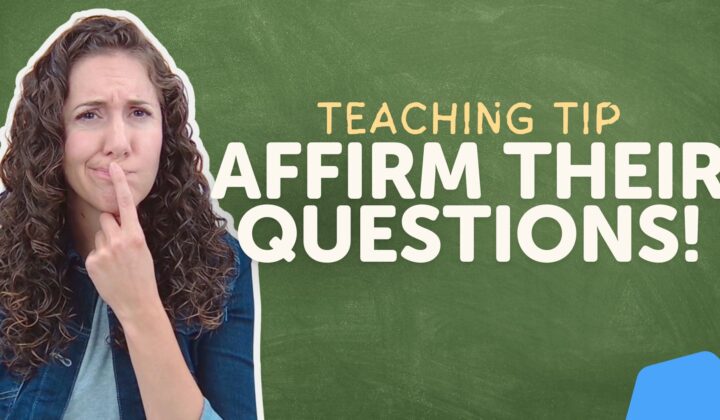
Affirm the Questions of the Children You Are Teaching
Affirm children’s questions to foster curiosity and lifelong learning. Discover a simple, biblical strategy for building a love of learning.
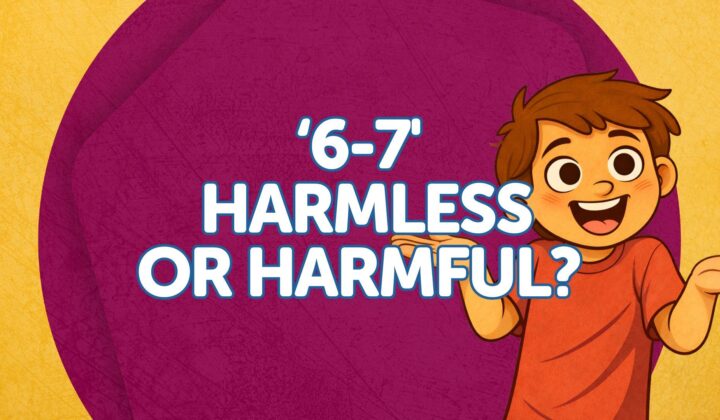
How Should Christians Respond to the "6 7" Trend? Helping Kids Think Biblically About Cultural Phrases
How should Christian parents handle the "six seven" trend? Learn to avoid the genetic fallacy and guide your kids to think biblically about cultural phrases.

How Do We Explain the Doctrine of Election to Kids?
How do you explain the doctrine of election to kids without causing fear? Discover how Scripture's promises bring peace and assurance to children's hearts.
